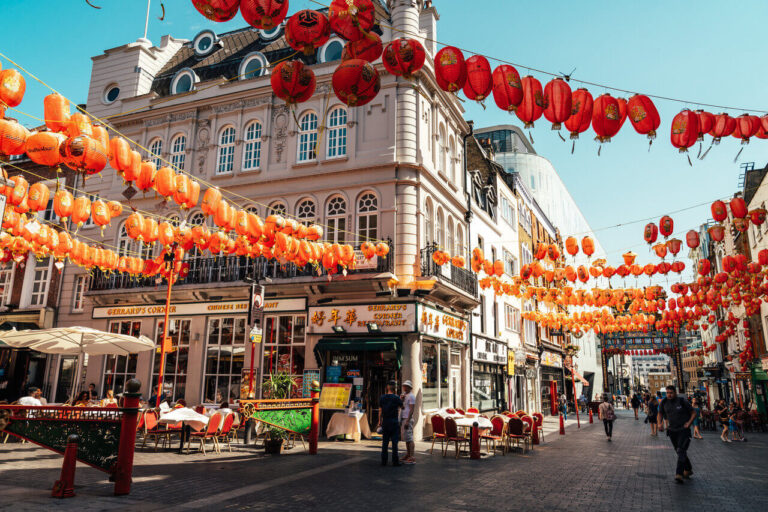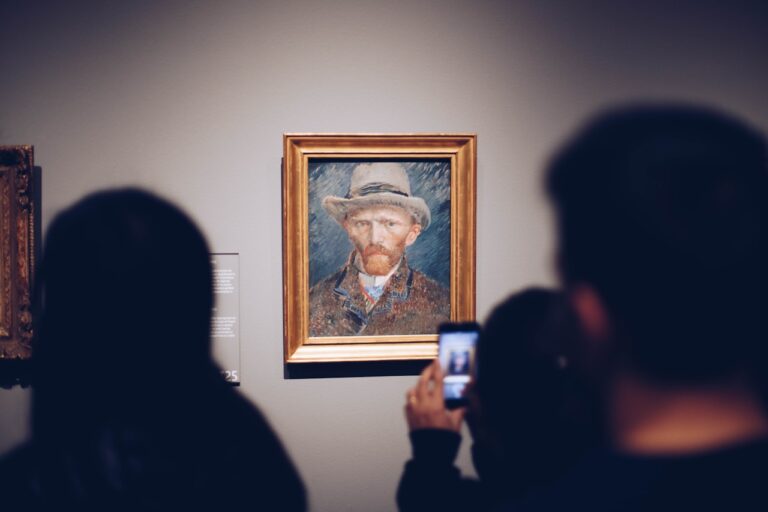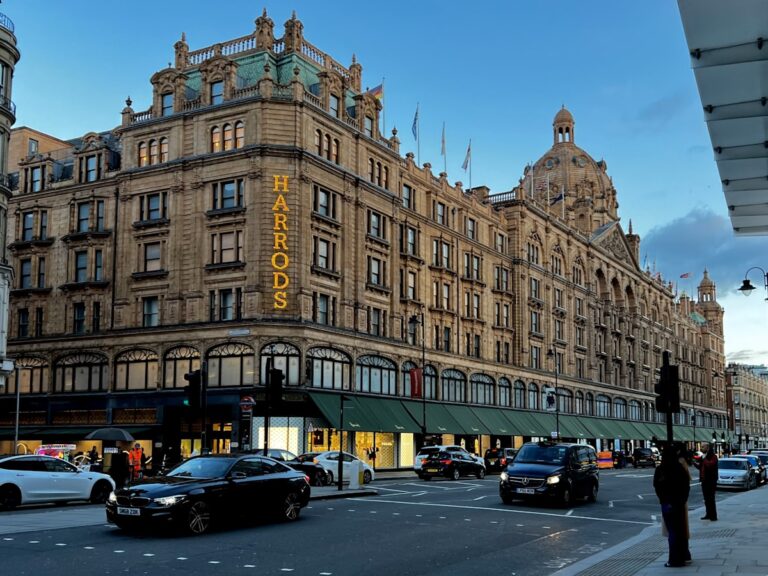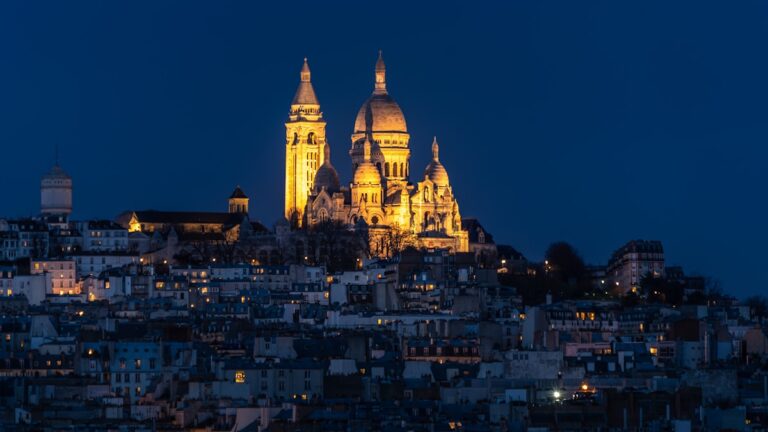Travel to Munich on a Budget
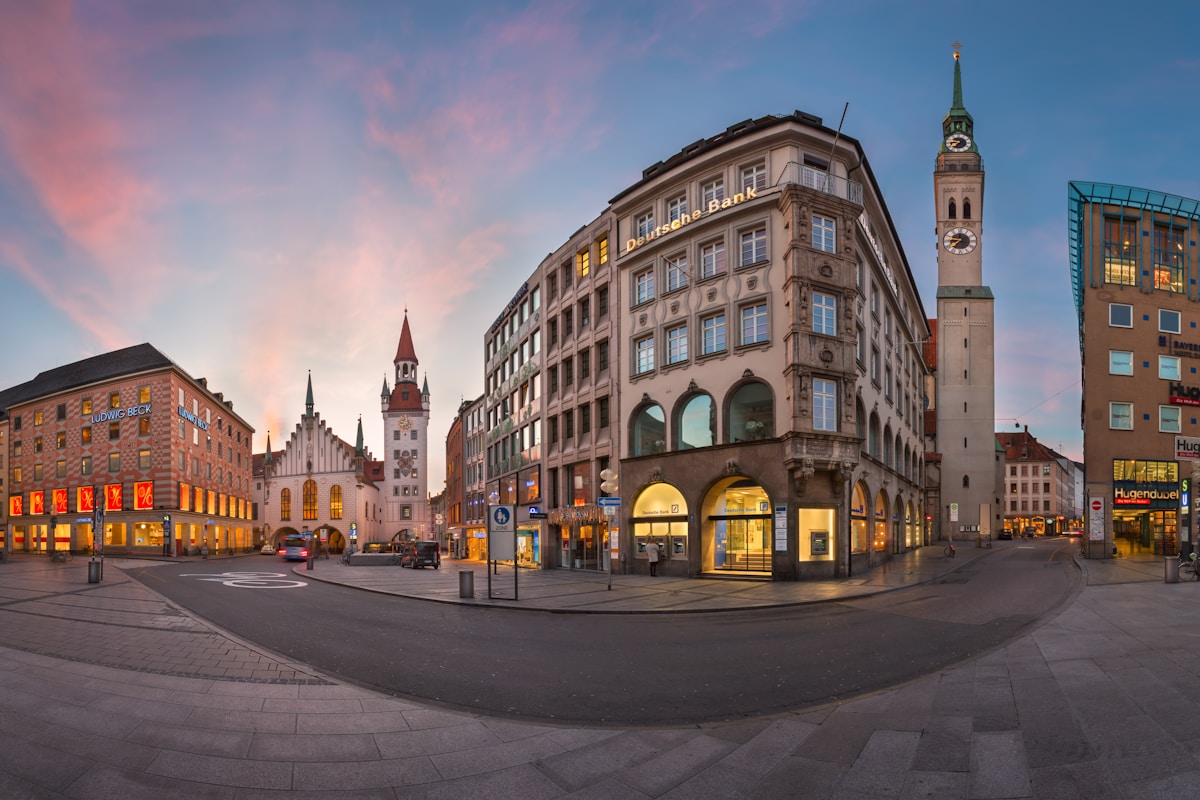
Munich can be enjoyed affordably with strategic planning. Travelers should visit during January-March for lowest prices, stay in hostels starting at €20/night, and purchase day passes for transportation.
- Everything You Need to Know About Visiting Munich on a Budget
- Choosing the Right Time and Way to Travel
- Saving on Accommodation in Munich
- Affordable Dining Without Missing the Local Flavor
- Low-Cost and Free Attractions in the City
- Getting Around Without Breaking the Bank
- Money Tips and Budget Planning
- Free Activities and Experiences to Add to Your Trip
- Where to Find Budget Deals and Resources
- Wrapping Up
Free attractions like Englischer Garten, Marienplatz, and Frauenkirche offer authentic experiences without cost. Eating at markets like Viktualienmarkt or self-catering saves considerably.
Budget travelers typically need €50-70 daily, while mid-range visitors spend €120-150. The following guide uncovers more money-saving opportunities.
Principal Conclusions
ShowEverything You Need to Know About Visiting Munich on a Budget

While Munich has a reputation as one of Germany’s most expensive cities, savvy travelers can experience its rich culture and Bavarian charm without draining their savings.
Travel to Munich on a budget requires strategic planning and resourceful choices. Is Munich expensive? Compared to other German destinations, yes—but backpacking Munich becomes manageable with the right approach.
Planning strategically transforms pricey Munich into an accessible adventure for budget travelers.
Visitors seeking things to do with a small budget in Munich should prioritize free attractions like Englischer Garten, Viktualienmarkt, and self-guided walking tours of historic neighborhoods.
Munich for backpackers offers numerous hostels with communal kitchens, allowing travelers to prepare meals rather than dining out constantly.
The city’s efficient public transportation system becomes affordable with day passes, while the Munich Card provides discounted entry to major attractions and unlimited transit—a worthwhile investment for budget-conscious explorers.
Choosing the Right Time and Way to Travel
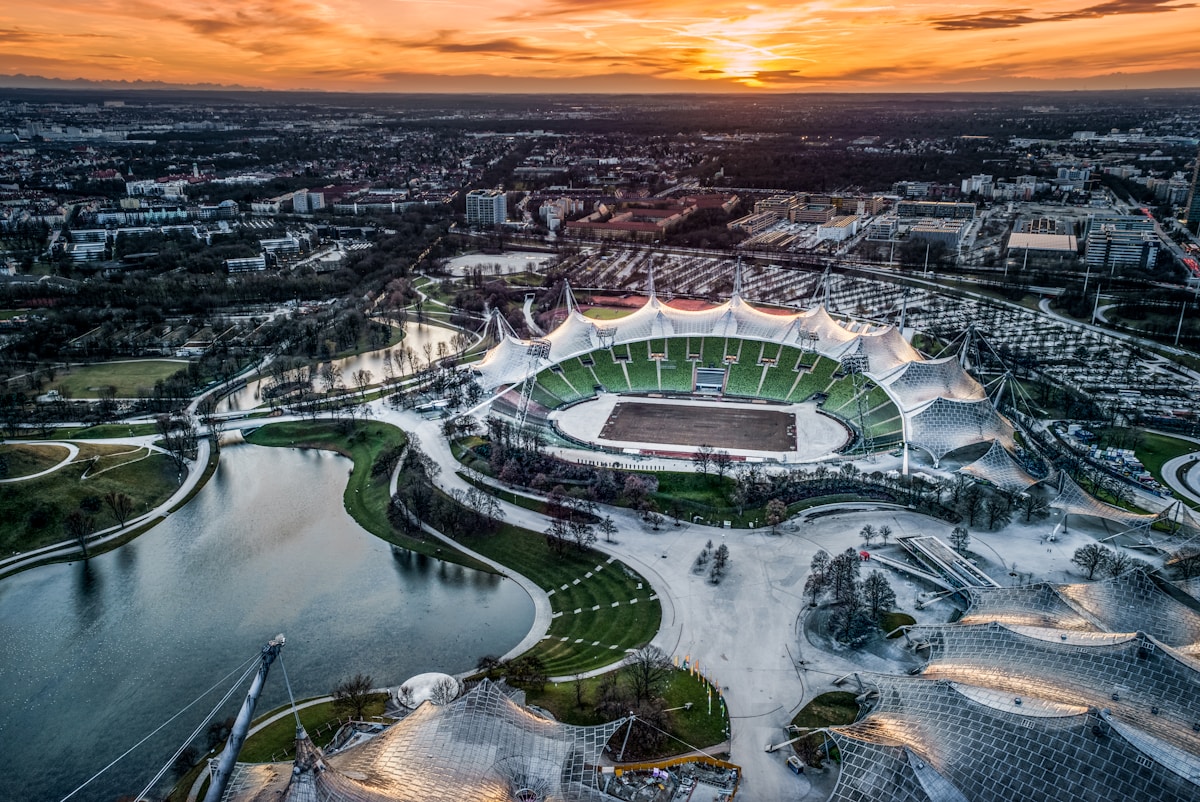
Timing a trip to Munich can greatly impact overall costs, with January through March offering the lowest prices on accommodations and fewer tourists.
Budget travelers should consider visiting during weekdays rather than weekends, and avoid peak seasons like Oktoberfest when prices skyrocket across the city.
Reaching Munich affordably involves comparing flight prices on multiple search engines, considering nearby airports like Memmingen, or exploring train connections through Europe’s extensive rail network.
Find the Cheapest Seasons to Visit Munich
Munich’s budget-conscious travelers should target November through March (excluding Christmas and New Year’s) for markedly reduced accommodation rates and flight prices.
These winter months offer 30-50% savings compared to summer peak season, though visitors should pack appropriately for temperatures that often hover near freezing.
Late January through February presents the absolute best value window, when tourism reaches its annual low point and even popular hotels slash their prices to maintain occupancy.
Off-Peak Travel Periods for Lower Airfare and Hotel Rates
When planning a budget trip to Munich, the timing of one’s visit can dramatically impact overall costs.
November through March (excluding Christmas and New Year’s) offers significant munich travel deals, with airfares dropping up to 30%.
Hotels near any park in Munich become more affordable, reducing munich money requirements.
Travelers typically report money spent in Munich decreases by 25% during these months.
Weather Considerations When Booking Budget Trips
Weather patterns directly influence both travel costs and experience quality in Munich.
The city experiences its highest prices during summer (June-August) and December’s Christmas markets.
For budget travelers, March-May and September-October offer ideal conditions—mild temperatures, fewer crowds, and considerably lower accommodation rates.
November remains the cheapest month, though prepare for cold, gray days.
Budget-Friendly Transportation Options to Reach Munich
Getting to Munich needn’t break the bank with numerous budget-friendly transportation options available year-round.
Travelers can capitalize on affordable flights from major European hubs, particularly when booking with low-cost carriers like Ryanair or EasyJet during midweek departures.
For those already in Europe, rail passes and intercity buses offer economical alternatives, with FlixBus and Deutsche Bahn frequently running special promotions for weekend city breaks.
Affordable Flights, Trains, and Buses from Nearby Cities
Reaching Munich affordably requires strategic planning about both when and how to travel.
Budget airlines like EasyJet and Ryanair offer deals from major European hubs, while regional trains from Vienna, Prague, and Zurich provide scenic alternatives.
FlixBus connects Munich to nearby cities for under €20, and ride-sharing platforms like BlaBlaCar cut costs further when travelers combine resources.
Munich Travel Deals for Long-Weekend Getaways
Munich transforms into a budget traveler’s paradise during specific periods, making three-day weekends both feasible and affordable.
Off-season visits (November-March, excluding Christmas markets) offer hotel rates up to 40% lower.
Package deals combining flight and accommodation through sites like Expedia or TravelZoo frequently feature 3-night specials under €300, especially during midweek arrivals.
Saving on Accommodation in Munich
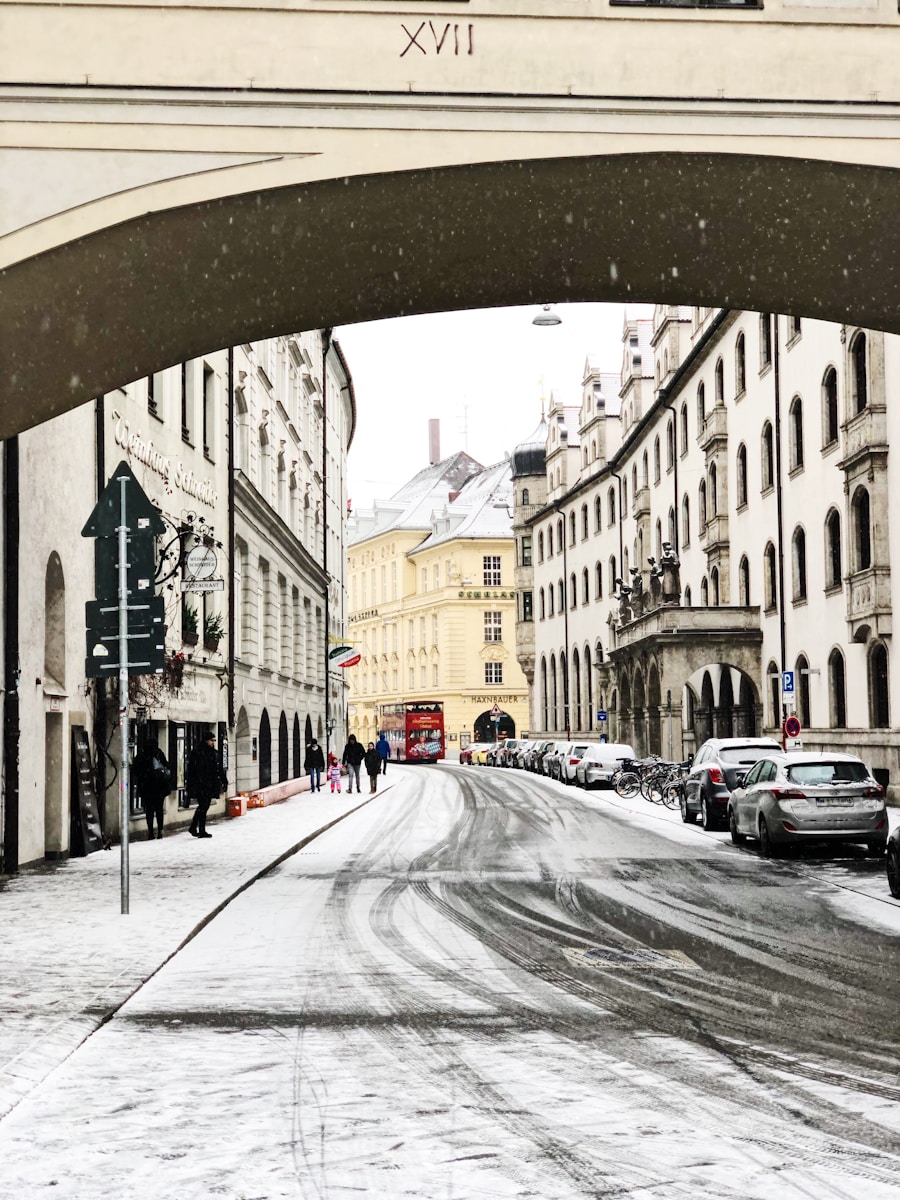
Finding affordable lodging in Munich requires knowing where to look beyond expensive hotels.
Budget-conscious travelers can opt for well-located hostels or family-run guesthouses that offer clean rooms at reasonable rates.
Thrifty alternatives like camping grounds on the city outskirts, homestay arrangements with locals, or short-term apartment rentals through platforms like Airbnb often provide both comfort and significant savings.
Budget Hotels and Hostels for Cost-Conscious Travelers
Munich offers numerous budget accommodation options that won’t drain travelers’ wallets while exploring Bavaria’s capital.
The Schwabing district provides affordable hostels near university areas, while Haidhausen combines reasonable prices with excellent public transport connections.
Savvy backpackers should consider the Wombat’s Hostel near Hauptbahnhof or Euro Youth Hotel for their central locations and communal kitchens that further reduce travel expenses.
Backpacking Munich: Where to Stay Without Overspending
When planning a budget trip to Bavaria’s capital, accommodation typically consumes the largest portion of travel expenses.
Smart backpackers opt for hostels like Wombat’s or Euro Youth Hotel near the Hauptbahnhof, offering dorms from €20/night. Many provide free walking tours and communal kitchens.
For longer stays, consider house-sitting or Couchsurfing to eliminate lodging costs entirely.
Best Neighborhoods for Cheap Yet Convenient Stays
While central Munich tends to command premium prices, savvy travelers can find affordable accommodation in several well-connected neighborhoods just outside the city center.
Schwabing offers student-friendly options near excellent transit links.
Au-Haidhausen provides cultural charm with lower rates.
Budget-conscious visitors should consider Giesing and Sendling, where local markets and affordable eateries complement the reasonable lodging costs.
All neighborhoods connect to central attractions via Munich’s efficient U-Bahn system.
Affordable Alternatives: Camping, Homestays, and Short-Term Rentals
Backpackers seeking Munich’s local flavor can explore family-run guesthouses or arrange Couchsurfing stays with hospitable locals.
These budget alternatives offer cultural immersion beyond typical tourist experiences while keeping accommodation costs minimal.
Securing these options requires advance planning, with bookings ideally made 3-6 months ahead for significant savings on nightly rates.
Munich for Backpackers: Local Guesthouses and Couchsurfing
For budget-conscious travelers exploring Munich, the city offers an array of wallet-friendly accommodation options beyond traditional hotels.
Backpackers can discover local guesthouses like Haus International or The Tent, where dorm beds start at €20.
Couchsurfing connects visitors with Munich locals offering free accommodation, providing cultural immersion while eliminating lodging costs—perfect for adventurous souls seeking authentic Bavarian experiences.
How to Book Early for Better Rates
Beyond guesthouses and couchsurfing, savvy travelers can release significant savings by mastering the timing of their Munich accommodation bookings.
The sweet spot for Munich reservations falls 3-4 months ahead, especially for Oktoberfest season when prices triple.
Many properties offer early-bird discounts of 15-25%. Setting price alerts on booking platforms and negotiating directly with smaller establishments can open up additional savings for budget-conscious adventurers.
Affordable Dining Without Missing the Local Flavor
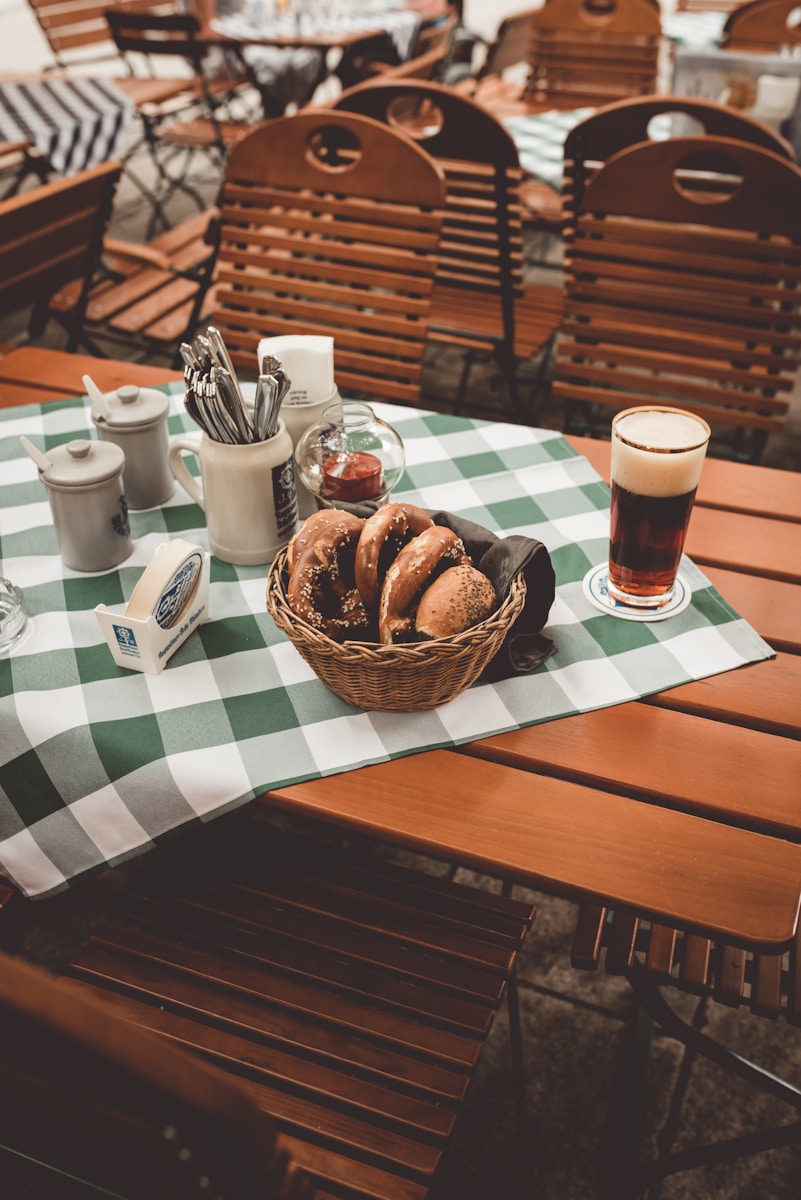
Munich offers budget travelers numerous ways to experience authentic Bavarian cuisine without overspending.
Visitors can sample local specialties at affordable prices in the city’s street food stalls, beer halls, and neighborhood markets like Viktualienmarkt.
For even greater savings, travelers should consider grocery stores and discount supermarkets like Aldi and Lidl where they can purchase fresh ingredients for self-catering or assemble picnic meals.
Munich’s Best Cheap Eats and Local Markets
Munich offers traditional Bavarian cuisine at wallet-friendly prices when travelers know where to look.
Street food vendors throughout the city serve everything from pretzels to currywurst for a fraction of restaurant costs.
Local bakeries provide both sweet and savory options perfect for breakfast or a quick lunch without straining a tight travel budget.
Enjoying Traditional Bavarian Food at Budget Prices
While visiting Bavaria’s capital can strain a traveler’s wallet, experiencing Munich’s rich culinary traditions doesn’t require emptying your bank account.
Traditional beer halls like Augustiner-Keller offer affordable daily specials.
For authentic weisswurst and pretzels, visit Viktualienmarkt’s standing-only counters.
Many neighborhood gasthäuser serve hearty schnitzel and käsespätzle at lunch for half the dinner price.
Popular Street Food Spots and Bakeries to Try
Beyond traditional beer halls, Munich’s streets offer a treasure trove of affordable dining options that showcase authentic Bavarian flavors.
Budget travelers should target Viktualienmarkt for fresh pretzels and affordable Weisswurst.
Vinzenzmurr’s takeaway counters offer quality sausages at street prices, while Rischart bakeries provide genuine Butterbrezn for under €2.
Food trucks near Marienplatz serve flavorful döner kebabs and currywurst for quick, inexpensive meals.
Grocery Stores and Budget-Friendly Supermarkets
Budget travelers can stretch their euros at Munich’s well-stocked supermarkets like Aldi, Lidl, and local favorite Edeka.
Hostel and apartment kitchens present opportunities to prepare simple Bavarian breakfasts of fresh pretzels, cheese, and fruit purchased for a fraction of restaurant prices.
Shopping at weekend farmers’ markets such as Viktualienmarkt during closing hours often yields discounted local specialties perfect for picnic lunches in the English Garden.
Where to Shop and What to Cook in Shared Kitchens
Most budget travelers discover that self-catering is the key to stretching euros in Munich.
Shared hostel kitchens provide perfect opportunities to prepare simple German meals like Kartoffelsalat (potato salad) or Flammkuchen (flatbread).
Stock up on local staples—pretzels, cheese, and wurst—from Aldi or Lidl, then supplement with fresh produce from Viktualienmarkt for authentic yet economical dining.
Tips for Eating Well Without Dining Out Every Meal
Munich’s extensive network of grocery stores makes affordable dining accessible for any traveler.
Budget chains like Aldi, Lidl, and Penny offer quality products at low prices. Local bakeries sell fresh pretzels and rolls for quick breakfasts.
For authentic Bavarian flavors without restaurant markups, shoppers can find pre-made potato salad, local cheeses, and traditional wurst at reasonable prices.
Low-Cost and Free Attractions in the City

Munich offers numerous budget-friendly attractions for travelers watching their expenses.
Visitors can explore historic landmarks like Marienplatz and the New Town Hall without spending a single euro.
Many of the city’s magnificent churches, including Frauenkirche and Asamkirche, welcome tourists free of charge, providing an economical glimpse into Munich’s architectural and cultural heritage.
Things To Do With A Small Budget In Munich
Munich offers budget travelers several free green spaces to explore, including the sprawling Englischer Garten with its Chinese Tower and the historic Olympiapark built for the 1972 Summer Olympics.
Savvy visitors can access Munich’s world-class museums without spending a euro by planning around free admission days, typically offered once weekly or during specific evening hours.
These cost-cutting opportunities allow travelers to experience Munich’s cultural richness while maintaining tight budget constraints.
Visit Parks in Munich Like Englischer Garten and Olympiapark
While exploring the city without breaking the bank, nature enthusiasts and budget travelers should prioritize Munich’s sprawling parks, which offer free entry and countless hours of enjoyment.
- Englischer Garten: Larger than Central Park, perfect for picnics and watching surfers on the Eisbach wave.
- Olympiapark: Free grounds access with stunning city views from the hills.
- Westpark: Less crowded alternative with beautiful Japanese garden and seasonal festivals.
Free Entry to Museums on Special Days and Hours
How can culture-hungry travelers experience Munich’s world-class museums without emptying their wallets?
Several Munich museums offer free admission on specific days.
The Bavarian National Museum waives entry fees on Sundays, while Pinakothek der Moderne offers free access every Sunday for €1.
The Munich City Museum grants free entry on Sundays, and Lenbachhaus welcomes visitors free each Tuesday after 6 pm.
Exploring Historic Landmarks and Churches for Free
Munich offers budget travelers free access to many iconic landmarks, including the stunning Marienplatz with its famous Glockenspiel and the towering twin domes of Frauenkirche cathedral.
Visitors can explore these historic sites at their own pace, with no admission charges to witness centuries of Bavarian architecture and culture.
Following a self-guided walking route from Karlsplatz through the city center provides an economical way for first-time visitors to experience Munich’s rich heritage while keeping expenses minimal.
Marienplatz, Frauenkirche, and Other City Icons Without Entry Fees
Despite being one of Germany’s most expensive cities, Munich offers numerous free attractions that showcase its rich history and architectural splendor.
Travelers can visit:
- Marienplatz’s Gothic New Town Hall featuring the famous Glockenspiel
- Frauenkirche’s distinctive twin towers offering panoramic views
- Viktualienmarkt food market for browsing local specialties and soaking up authentic Bavarian culture
Scenic Walking Routes for First-Time Visitors
Beyond its popular attractions, Munich discloses its charm through well-designed walking routes that cost nothing but deliver maximum cultural value.
First-timers should explore the Isar River path, connecting English Garden with historic bridges and beer gardens.
The Maxvorstadt art district walk showcases universities and museums, while the medieval route through Altstadt reveals hidden courtyards.
Download free city walking maps from Munich Tourism Office.
Getting Around Without Breaking the Bank

Munich offers budget-conscious travelers excellent transportation options that won’t drain their funds.
The city’s extensive public transport network includes discounted day passes and group tickets that prove economical for exploring multiple attractions.
Visitors can also take advantage of Munich’s bike-friendly infrastructure and walkable city center to save money while experiencing the city at a more intimate pace.
Use Public Transportation Smartly in Munich
Munich’s extensive public transportation network offers budget travelers various cost-effective ways to navigate the city.
Visitors can choose between single-ride tickets, day passes, or the economical IsarCard for weekly travel, with all options covering the U-Bahn, S-Bahn, trams, and buses.
For maximum savings, consider purchasing the Munich CityTourCard, which combines unlimited transit access with discounts to major attractions.
Cheapest Ways to Use the Munich Metro, Tram, and Bus Systems
Three key ticket options make maneuvering Munich’s public transportation system both affordable and efficient.
Budget travelers can maximize their mobility while preserving funds by choosing wisely.
- Single Day Ticket (Tageskarte) – unlimited travel for €7.00
- 3-Day Group Pass (3-Tage-Gruppenkarte) – €33.30 for up to 5 people
- Weekly IsarCard – €15.00 for Zone M with unlimited rides
Munich Transit Pass Options for Daily or Weekly Use
Beyond the basic ticket options, savvy travelers should consider the full range of transit passes that can dramatically reduce transportation costs during a Munich stay.
The IsarCard offers unlimited daily or weekly travel across all zones for less than multiple single tickets.
The Munich CityTourCard combines transportation with museum discounts, while the economical Partner Day Ticket covers up to five people traveling together.
Walk and Bike Through the City
Munich offers numerous pedestrian-friendly zones where budget travelers can safely explore iconic attractions on foot without spending a euro.
The city’s efficient bike-sharing system provides an economical alternative with pickup and drop-off stations conveniently scattered throughout the central districts.
For longer stays, weekly bicycle rentals from local shops prove more cost-effective than daily public transportation passes while offering greater flexibility to discover hidden neighborhoods.
Safe Areas to Explore on Foot
Walking around Munich is one of the most budget-friendly ways to experience the city’s charm.
The following areas offer safe exploration without spending a euro on transportation:
- Marienplatz and the historic center remain well-lit and populated until late
- English Garden provides extensive walking paths among locals
- Riverside walks along the Isar offer peaceful routes connecting multiple neighborhoods
Public Bikes and Cost-Effective Rental Services
Why spend money on taxis when Munich offers an impressive network of public bike rentals at a fraction of the cost?
MVG Rad and CallaBike provide abundant stations throughout the city, with rates starting at just €0.08 per minute. Simply download their apps, locate a nearby bike via GPS, and release freedom.
For longer stays, weekly rentals from local shops cost approximately €50-70.
Money Tips and Budget Planning
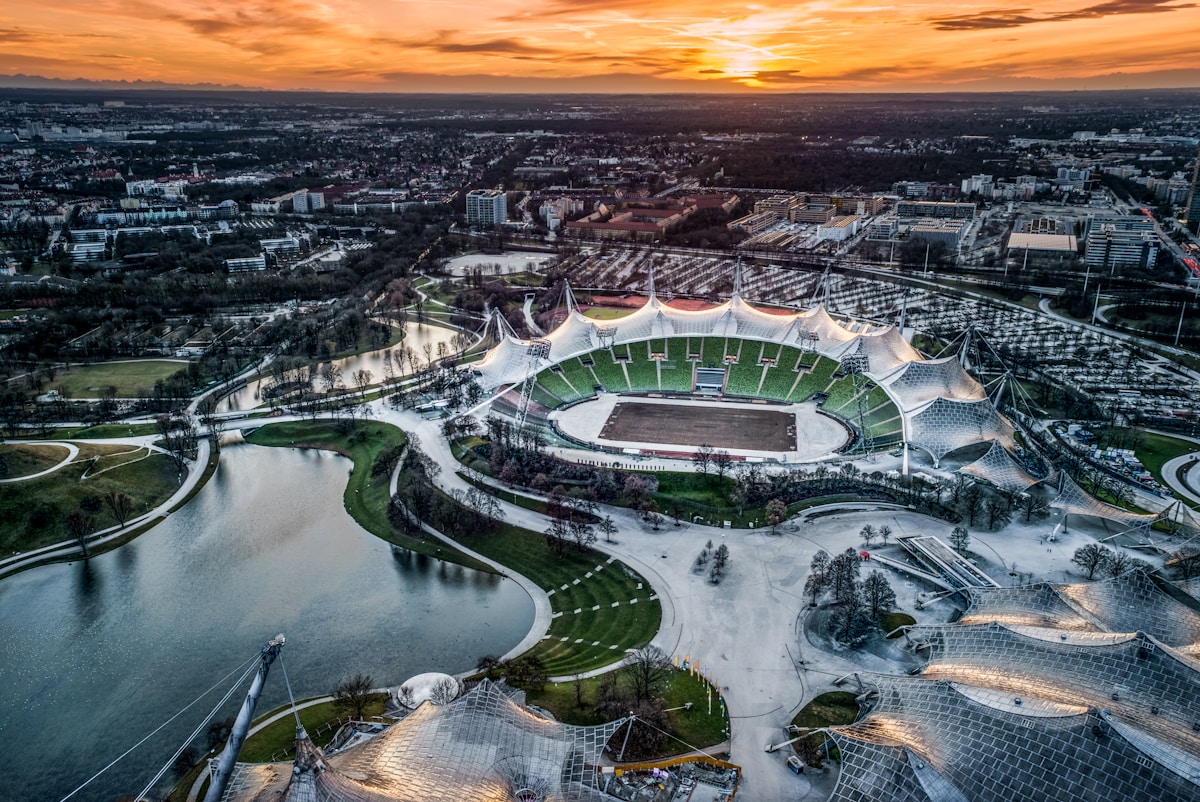
Munich’s cost of living ranks among Germany’s highest, requiring careful budget planning for travelers.
Visitors typically spend €100-150 per day, which includes accommodation, meals, transportation, and attractions.
Understanding local currency exchange rates, ATM fees, and tipping expectations can immediately reduce unnecessary expenses during your Bavarian adventure.
Understanding Munich Money Basics
Understanding Munich’s payment landscape saves travelers money and frustration.
Most establishments accept credit cards, but carrying some Euros remains practical for smaller establishments, with ATMs readily available throughout the city.
Smart travelers can minimize fees by using bank-affiliated ATMs, opting for local currency transactions when paying by card, and considering a travel-friendly bank account that waives foreign transaction fees.
Common Payment Methods and ATM Access
Most travelers in Munich will find card payments widely accepted, with Visa and Mastercard being the preferred options at hotels, restaurants, and larger shops.
For budget-conscious visitors, understanding local payment methods saves money:
- ATMs (Geldautomaten) are abundant, but use bank-affiliated machines to avoid fees.
- Smaller shops and markets often prefer cash, especially under €20.
- Notify your bank before travel to prevent card blocks.
Tips to Avoid Excessive Fees and Conversion Charges
When traveling abroad, excessive fees and conversion charges can quickly deplete a vacation budget if left unchecked.
Savvy travelers should always decline dynamic currency conversion, withdraw larger sums less frequently from bank-affiliated ATMs, and use no-foreign-transaction-fee credit cards.
Notifying banks before departure prevents card freezes, while pre-loading travel cards locks in favorable exchange rates.
How Much Money Is Spent in Munich Per Day on Average
Travelers in Munich face varying daily costs depending on their comfort expectations and spending habits.
Backpackers typically budget €50-70 daily, covering hostel stays, public transportation, and budget meals, while mid-range travelers allocate €120-150 for hotel accommodation, restaurant dining, and attraction admissions.
Understanding these baseline figures helps visitors make practical choices that align with their financial resources while still experiencing Munich’s cultural offerings.
Sample Budget Breakdown for Backpackers and Mid-Range Travelers
Planning a trip to Munich requires understanding the city’s daily costs for different travel styles. Savvy travelers can stretch their euros with these practical breakdowns:
- Backpackers: €45-60/day (€15 hostel, €15 groceries/street food, €15 transportation/attractions)
- Mid-range: €100-150/day (€60 hotel, €25 restaurants, €25 activities)
- Weekend splurge: €40 additional for Biergarten visits and museum passes
Cost Comparison for Different Travel Styles
Munich’s daily expenses vary dramatically depending on one’s travel style, with budget-conscious visitors spending considerably less than luxury travelers.
Backpackers can survive on €50-70 daily, while mid-range travelers typically spend €100-150.
Luxury experiences command €250+ per day.
Free Activities and Experiences to Add to Your Trip

Munich offers numerous free activities that maximize a traveler’s experience without depleting their wallet.
The city’s expansive parks, including the English Garden and Olympiapark, provide scenic spaces for picnics, sunbathing, and observing local life without spending a single Euro.
Throughout the year, budget-conscious visitors can also access free cultural events such as Summer Festival concerts, Tollwood Festival exhibitions, and seasonal Christmas markets that showcase authentic Bavarian traditions.
Parks and Outdoor Spaces That Don’t Cost a Euro
Munich offers numerous free urban green spaces perfect for budget travelers seeking relaxation or authentic people-watching opportunities.
The English Garden provides vast lawns ideal for picnics, while Olympiapark offers peaceful reading spots with scenic views of the city.
Visitors can easily spend half a day in these parks with only the cost of whatever snacks they choose to bring along.
Relaxing or People-Watching in Urban Green Spaces
While exploring Munich on a budget, travelers should take advantage of the city’s abundant urban green spaces that offer free respite from sightseeing.
Munich’s urban parks provide cost-conscious visitors with:
- People-watching opportunities at Gärtnerplatz, where locals gather on sunny days
- Quiet reading spots along the Isar River’s grassy banks
- Free cultural observations at Hofgarten, where street musicians often perform
The Best Spots to Enjoy a Picnic or Read a Book
For budget-conscious travelers seeking peaceful escapes without spending a single euro, Munich offers numerous picturesque spots perfect for spreading a blanket or opening a good book.
The English Garden’s meadows provide secluded reading nooks, while Maximiliansanlagen along the Isar River offers quiet riverside retreats.
Westpark’s rose garden and Schloss Nymphenburg’s free-access outer gardens deliver serene sanctuaries for cost-free relaxation.
Budget Cultural Events and Seasonal Festivals
Munich offers numerous free cultural experiences where visitors only pay what they can afford through donation boxes at museums and concert venues.
Seasonal festivals like Tollwood Summer Festival provide free entry with only food and special performances requiring payment.
The city’s rich traditions become accessible through free folk music performances at Viktualienmarkt, Gärtnerplatz impromptu concerts, and the daily Rathaus-Glockenspiel show in Marienplatz.
Free or Donation-Based Music, Film, and Art Events
Why spend money on cultural experiences when Munich offers a wealth of free and donation-based events year-round?
Savvy travelers can enjoy Munich’s lively cultural scene without spending a euro:
- Outdoor film screenings in summer at Olympiapark
- Free concerts at Marienplatz and university campuses
- “Pay-what-you-wish” days at major galleries like the Pinakothek museums
Munich Traditions You Can Experience Without a Ticket
When exploring Bavaria’s capital, budget-conscious travelers can immerse themselves in authentic local traditions without spending a cent.
Watch the Glockenspiel show at Marienplatz daily at 11am and noon.
Experience the Viktualienmarkt’s lively atmosphere.
Join locals during Frühschoppen (pre-lunch drinks) at beer gardens where you can bring your own food.
Witness the Kocherlball summer dance at Chinese Tower and seasonal Maypole celebrations throughout the city.
Where to Find Budget Deals and Resources
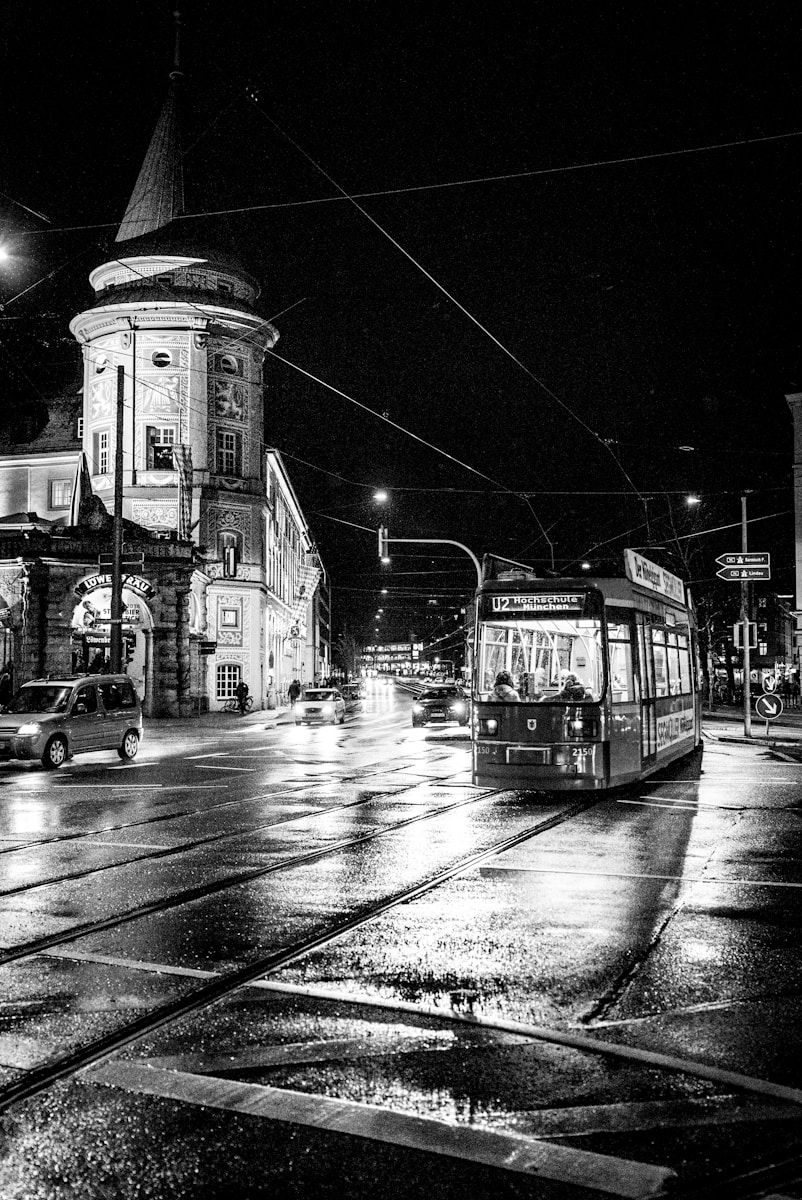
Savvy travelers access Munich’s best deals through dedicated apps like “Munich Travel Guide” and discount websites that feature seasonal promotions and last-minute offers.
The city’s Tourist Information Centers, located at Marienplatz and Hauptbahnhof, provide free maps, discount vouchers, and insider tips on economical transportation options.
Students should always carry valid identification to take advantage of substantial discounts at museums, attractions, and even some restaurants throughout Bavaria’s capital.
Apps and Websites for Munich Travel Deals
Munich’s budget-conscious travelers can access several practical tools for securing affordable accommodations and transit passes.
The Munich MVV app offers discounted day tickets while platforms like Booking.com and Hostelworld frequently feature special deals on centrally-located hostels and budget hotels.
Visitors should also monitor event-tracking websites such as München.de and MeetUp for free walking tours, cultural festivals, and complimentary museum days throughout the city.
Booking Tools for Cheap Accommodation and Transit Passes
Finding affordable accommodation and transportation in Munich doesn’t require endless searching or insider connections—just the right digital tools.
For budget travelers seeking liberation from high costs, several booking platforms stand out:
- Booking.com and Hostelworld for last-minute accommodation deals, especially in off-peak seasons
- MVV Companion app for discounted group transit passes
- Deutsche Bahn Navigator for regional Bavaria day tickets
Event Platforms to Track Free or Low-Cost Things to Do
When should budget travelers look for Munich’s best free attractions and events? Timing is everything – search 2-3 weeks before arrival and continually during your stay.
Essential platforms include München.de, MunichNOW, and Facebook Events for locals-approved gatherings.
The Munich Tourism Office app regularly updates free walking tours, museum days, and seasonal festivals that won’t drain your wallet.
Local Tourist Info Centers and Student Discounts
Munich’s main tourist information center at Marienplatz offers free city maps, budget-conscious itineraries, and insider tips for economical exploration of the city.
Students should always carry valid international student ID cards, which grant substantial discounts at museums, transportation services, and many attractions throughout Bavaria’s capital.
The lesser-known tourist office at the main train station specializes in budget accommodation options and provides detailed information about the economical Munich Card, which combines transportation and attraction discounts for cost-conscious travelers.
Where to Go for Free City Maps and Budget Advice
Where can budget-conscious travelers find free maps and money-saving advice in Munich? Several locations offer these essentials for the thrifty explorer:
- Munich’s Hauptbahnhof tourist office distributes detailed city maps and budget brochures.
- Public libraries maintain resource sections with local guides and money-saving tips.
- Hostels typically provide free neighborhood maps and staff recommendations for affordable experiences.
How to Use Student or Youth ID Cards for Extra Savings
Student and youth ID cards serve as powerful money-saving tools throughout Munich.
International Student Identity Card (ISIC) holders can access discounts at museums, theaters, and transportation.
Youth travelers (under 26) should always inquire about reduced rates at attractions and hostels.
These cards often open up 10-50% savings on cultural sites, meals, and experiences that would otherwise strain tight budgets.
Wrapping Up
Munich unfolds like a treasure map for budget travelers who know where to look. With strategic planning—from off-season visits to transit passes that stretch euros like elastic—this Bavarian gem doesn’t demand golden coffers.
Smart wanderers pocket memories without emptying wallets, proving that Munich’s magic lives not in lavish spending but in resourceful exploration. The city’s true wealth lies in experiences that cost nothing but appreciate with time.

